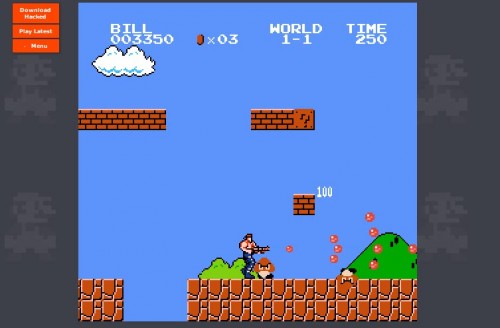


If you are a game lover, then you can install games as extensions and play them right in your browser itself. These extensions might be useful in many ways. Google Chrome apart from being a successful web browser, it offers you many extensions to meet your needs. It offers you many features and functionalities which are missing in other web browsers. Google Chrome is one of the fastest and mostly used Web browsers.


If you want to start saving, here’s a shameless plug to visit WIRED's Backchannel page, chock-full of excellent long-form narratives that will transport you during your disconnected commute.5 Best Games to Play in Google Chrome Browser But for someone who opens a million tabs with an intention to eventually read them all, it's my preferred way to dog-ear a story. Pocket also recommends stories, based on other users you follow or topics that interest you, and allows you to optimize your reading experience-I prefer a serif font with a black background and very large text to protect my fatigued eyes. This nifty extension allows you to stow away things you want to read later, no internet connection necessary (though if you use the Pocket app on your phone, be sure to sync it over Wi-Fi or a network connection before going into Airplane mode). Instead, what I prefer to do before leaving for the airport is save a bunch of stories to Pocket. Or I could connect to plane Wi-Fi and incessantly check Twitter. To pass the tarmac time, I could watch a bunch of downloaded episodes of The Crown or The Great British Baking Show. In the past year, I've taken roughly a dozen round trips, each with their own fun, idiosyncratic layovers and delays. Others include GateKeeper, which makes you wait a few seconds before loading a page you’ve been trying to give up, and the devilish 1Minute Assassin, which kills a tab after 60 seconds. One of them is the timer that now haunts me on Twitter, a nudge called the Supervisor. It also offers a menu of “nudges” to help keep those trend lines moving in the right direction. HabitLab will then keep track of your wasted seconds, minutes, and hours and display them in neat charts. When first installed, it prompts you to identify the sites you want to spend less time on. HabitLab was developed by Stanford’s Human Computer Interaction group to help those of us suffering internet distraction disorder (most of us?) take control of our online habits. The message comes with a different “Good job!” GIF each time most recently it was Jimmy Kimmel. If I open a Twitter tab but regain my senses and close it again quickly, a pop-up informs me how many seconds I just saved compared to my usual time-wasting visit. Anytime I look at the bird-logoed slot machine of trolling, outrage, and thinkfluencing, there’s now a bold banner at the top counting how long I’ve been on the site that day. My name is Tom and I have a Twitter problem-but I’m getting help from a Chrome extension called HabitLab. But why force yourself to press two keys when you can install this extension and press only one? The preferred keystroke of Alt + left arrow is still the default in Chrome, and maybe you're used to that now. Thankfully, the company recognized our plight and just weeks later released this extension, which restores the back-button functionality of the backspace key. Google had neutered one of the most useful mechanisms for navigating the web. But imagine the outrage of millions of Chrome users when, upon the next browser update, the backspace key suddenly did nothing. When a user typed into a browser text field and hit the backspace key hoping to correct a typo, they'd sometimes inadvertently cause the browser to jump back one page, nuking whatever efforts they'd spent the last few minutes sweating over. But Google removed the backspace action that summer, because it caused a particularly Googley problem: People were losing work in web apps. By mid-2016, this action-a simple keystroke to go back one page in your browser history-had become hardwired in our lizard brains. It had been that way since the browser's launch some eight years prior. Up until that point, the backspace key on your desktop keyboard doubled as a back button in Chrome. In July of 2016, the world changed for the worse.


 0 kommentar(er)
0 kommentar(er)
